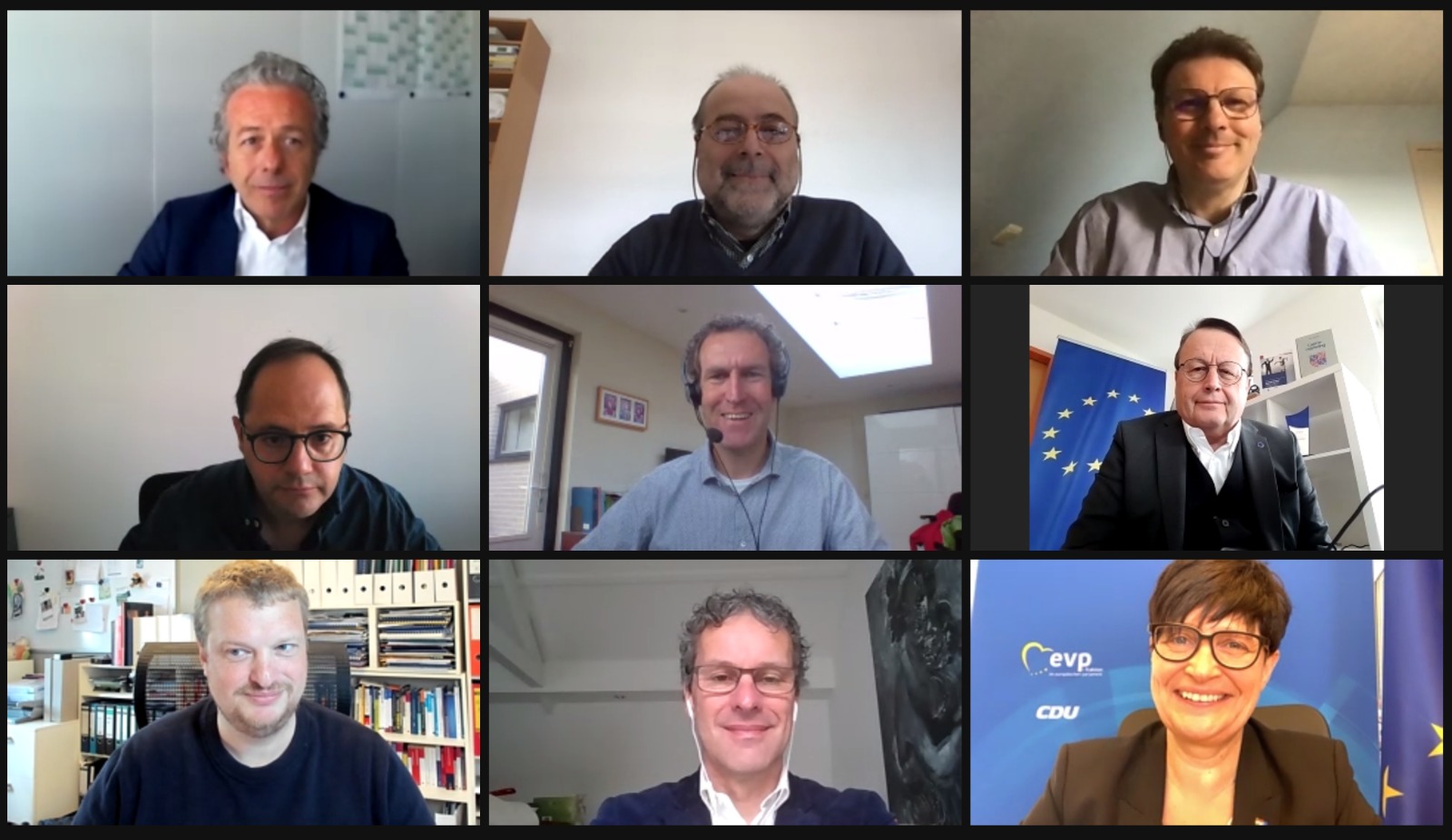Research and Innovation:
How Horizon Europe Impacts the Food and Agriculture Sector

On Thursday 15th of April the SME Connect Working Group on Health & Nutrition organised the webinar on Research and Innovation: How Horizon Europe Impacts the Food and Agriculture Sector. High-level policymakers, experts of the food industry and other stakeholders came together to discuss innovation opportunities to ensure the access to affordable safe and healthy food with high quality whilst the EU Agri-Food industry is capable of developing its full growth potential and protecting the environment.
Moderated by Dr. Horst Heitz, Chair of the Steering Committee of SME Connect, the Virtual meeting saw such high-level speakers such as César Luena MEP, Vice-Chair of ENVI Committee; Christine Schneider MEP, ENVI & AGRI, Chair of SME Connect WG Health and Nutrition; Roberto Berutti, Member of Cabinet of Janusz Wojciechowski, European Commissioner for Agriculture; Patrick Coppens, Director of Scientific and Regulatory Affairs, Food Supplements Europe; Johan Sanders, President of Fedima; Jeroen Wouters, Director of International Food Valley NL; Prof. Roberto Papa, Professor in Plant Genetics, Special Advisor on Food & Environment of SME Connect WG Health and Nutrition; Dr. Paul Rübig, President of SME Connect.
César Luena MEP, opens the floor remarking that COVID has changed the way citizens relate to food, increasingly valuing health and sustainability as key factors to consider when it comes to nutrition. He believes that “new consumer expectations will bring new opportunities for the agri-food sector. Horizon Europe is the key to translate this potential into practice”.
Christine Schneider MEP states “The challenge is to ensure optimal human health and wellbeing, while also protecting the environment and promoting the competitiveness of the European agri-food sector”. In order to achieve this, there is much intensive research to be conducted, especially in the fields of farming and food labelling.
In his presentation, Roberto Berutti outlines the expected impacts of Horizon Europe in the agriculture area. “Research and innovation are key enablers”, he remarks.
Patrick Coppens points out the importance of ensuring that new innovations can be easily and rapidly put on the market without long bureaucratic processes. Some challenges are: “Sometimes legislation is so detailed and prescriptive that it could hinder innovation […] Authorization processes are very lengthy”.
Johan Sanders states: “Sustainability is a priority for FEDIMA. Besides legislation, education is crucial. There’s a need to educate consumers on what is healthy and what isn’t.” Johan also names important vectors that FEDIMA is working in: sustainable packaging, responsible sourcing, energy emission, people and communities, health and nutrition, etc.
On behalf of Food Valley NL, Jeroen Wouters states that the ecosystem innovation, public-private partnerships, and the inclusion of all stakeholders including SMEs, are the keys to change the agri-food sector for the best.
Prof. Roberto Papa believes in the importance of changing our diets. He thinks that the transition to a plant-based diet is a must. Together with citizens, participatory science, can promote plant-based food such as legumes within Europe.
In conclusion, Dr. Paul Rübig speaks about three factors: sustainable food, clean water & sanitation and renewable energy. These factors are key, and they form a triangle which is the base for human living. This is why we need to work on this triangle with a good concept on investment, education, science and research.